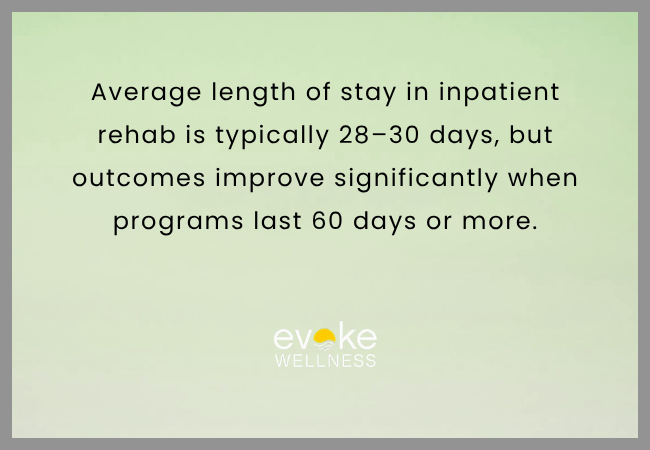Taking the first step toward recovery is never easy, but it can be one of the most empowering choices a person makes. For individuals struggling with substance use disorders, inpatient rehabilitation programs offer a transformative experience that provides structure, support, and essential life tools. The environment, treatment approach, and resources available through inpatient rehab can make a lasting impact on a person’s ability to achieve and maintain sobriety.
Removing Triggers and Distractions
One of the most significant aspects of inpatient rehab is its capacity to remove individuals from environments that may have enabled substance use. Triggers such as stress, unhealthy relationships, or easy access to drugs or alcohol can make recovery nearly impossible without a complete shift. Inpatient rehab provides a safe, sober, and supportive environment where individuals can focus exclusively on their recovery journey without distraction.
During their stay, clients follow structured daily routines that include individual and group therapy, physical wellness activities, nutritional support, and time for reflection. This routine plays a vital role in teaching responsibility and self-discipline. Most people entering treatment have experienced chaotic lifestyles due to addiction, and this newfound stability is often a powerful motivator.
At a Residential Treatment Center in Massachusetts, clients have access to an environment free of distractions where they can start the recovery process with full support and care.
Access to Professional Care and Support
Inpatient programs are designed to provide 24/7 medical and psychological support. This level of care is particularly important during early recovery, when withdrawal symptoms, emotional instability, and cravings can feel overwhelming. Having access to professionals at all times not only enhances safety but also gives individuals the confidence to stay the course. The constant supervision and expert guidance provided in these programs are invaluable for ensuring that individuals remain on the path to long-term recovery.
Through skilled clinicians, addiction counselors, and healthcare professionals, clients receive a comprehensive treatment plan tailored to their specific needs. The holistic approach used in these programs ensures that all aspects of addiction, including physical, mental, and emotional well-being, are addressed simultaneously.
Comprehensive Therapy Options
Therapy is a central part of inpatient treatment, and programs typically include a wide range of therapeutic approaches. These may include cognitive-behavioral therapy (CBT), trauma-informed therapy, motivational interviewing, and holistic methods like yoga or meditation. Each person’s treatment plan is customized based on their needs, and progress is monitored closely to ensure effectiveness.
By addressing both the psychological and physical aspects of addiction, inpatient rehab helps clients uncover and confront the root causes of their substance use. Many people enter treatment with unresolved trauma or mental health disorders that contribute to their addiction. Through therapy, these underlying issues are addressed, which can significantly increase the chances of a successful recovery.
Additionally, therapy helps individuals understand the core reasons behind their addictive behaviors, such as emotional pain, past trauma, or genetic predispositions. Identifying these root causes and learning how to manage them through therapy is a crucial step in long-term recovery.
Peer Support and Community Connection
Peer support is another invaluable component of inpatient rehab. Clients live alongside others who understand the challenges of addiction, which helps eliminate feelings of isolation and shame. Daily group therapy sessions encourage vulnerability and connection, creating a sense of shared purpose that motivates everyone involved. Group discussions and activities allow individuals to feel heard, understood, and validated in their struggles, which strengthens their resolve to stay sober.
The shared experience of recovery often forms deep and meaningful relationships. These connections help individuals realize that they are not alone in their journey and that others have faced similar struggles. Group therapy provides a sense of belonging, which is crucial for overcoming isolation and building a solid foundation for recovery.
As a Mental Health Treatment Center in Massachusetts, we provide an environment where individuals can build these meaningful relationships, gain emotional support, and foster their recovery with the help of others who understand their struggles.
Learning Coping Strategies for Long-Term Recovery
A lesser-known benefit of inpatient rehab is the emphasis placed on developing coping strategies. Recovery isn’t just about stopping substance use—it’s about learning how to live a fulfilling life without returning to old patterns. Through skill-building sessions, clients learn how to manage cravings, cope with difficult emotions, and handle life’s inevitable stressors in healthier ways.
These strategies extend beyond the confines of the rehab center, equipping individuals with tools they can use in real-life situations. Clients learn to handle triggers and cravings when they return to their normal routines, helping them avoid relapse. The ability to manage emotions and stress without turning to substances is key to sustaining sobriety.
Emphasis on Physical Wellness
Many inpatient facilities also incorporate physical wellness into their programs. This includes exercise routines, recreational activities, and proper nutrition. Addiction often takes a serious toll on the body, and replenishing physical health can enhance emotional and mental healing. When individuals begin to feel better physically, they are more likely to stay committed to their recovery journey. Rebuilding physical health is key to a holistic recovery approach that addresses all aspects of the individual.
Physical activity has been shown to reduce stress, improve mood, and enhance cognitive function. By focusing on physical wellness, inpatient rehab ensures that clients leave with a stronger sense of physical vitality and mental clarity. Moreover, regular exercise and a balanced diet help individuals regain energy and motivation, which are essential for continuing on the path to recovery.
Understanding the Root Causes of Addiction
Another core strength of inpatient rehab is the opportunity for individuals to explore the root causes of their substance use. Addiction is rarely about just the substance; it’s often the result of unresolved trauma, co-occurring mental health issues, or deeply ingrained behavioral patterns. Through consistent therapeutic work, clients begin to understand what led them to substance use in the first place, and they begin the process of healing at its core.
This process often involves confronting past traumas, relationship difficulties, or personal struggles. By addressing these underlying issues, clients gain a greater understanding of themselves and their behaviors. This, in turn, helps them make lasting changes in their lives and break free from the cycle of addiction.
Family Involvement in the Recovery Process
Family involvement is also an integral part of inpatient rehab. Addiction doesn’t just affect the person using—it impacts entire families. Many programs offer family counseling and educational workshops to rebuild trust, improve communication, and equip loved ones with the tools to support ongoing recovery. These efforts help build a supportive network that continues long after the individual completes treatment.
Rebuilding these relationships is vital for long-term recovery, as strong family support can significantly reduce the risk of relapse. Family members can better understand their loved one’s struggles, learn how to provide positive encouragement, and manage their own emotions related to addiction and recovery.
Aftercare Planning for Continued Support
Aftercare planning is a crucial component of inpatient rehab. Discharge doesn’t mean the end of support—in fact, it marks the beginning of a new chapter. Inpatient programs typically help clients create detailed aftercare plans that may include outpatient therapy, support groups, and community resources. This level of preparation is key to sustaining long-term sobriety.
Aftercare planning is essential because it bridges the gap between inpatient treatment and the real world. With a comprehensive plan in place, individuals are equipped with a solid foundation of resources, including therapists, support networks, and recovery-focused activities. This ongoing support ensures that clients have the tools they need to maintain their sobriety and continue their personal growth after rehab.
Why Choose Us?
At Evoke Wellness at Cohasset, we understand the complexities of addiction and the importance of a comprehensive, supportive recovery journey. As a Luxury Rehab Center Massachusetts, we offer an environment where healing begins with serenity and care. Our team of dedicated professionals is committed to providing the highest standard of care and support. With our client-centered approach, we ensure that each individual receives the best possible treatment in a safe and nurturing environment.
Our specialized programs, including our Intensive Inpatient Program in Massachusetts, are tailored to meet the unique needs of each individual. We combine clinical excellence with compassionate care to empower our clients to reclaim their lives and achieve lasting recovery.
Conclusion
Choosing to enter inpatient rehab is a powerful step towards recovery. The benefits of inpatient rehab, such as professional care, peer support, comprehensive therapy, and personalized aftercare, create a strong foundation for lifelong sobriety. At Evoke Wellness at Cohasset, we provide an environment that fosters healing, growth, and recovery. If you’re ready to take the next step, call us today at 866.931.6429 to begin your journey toward lasting recovery.
Frequently Asked Questions (FAQs)
What is inpatient rehab and how does it work?
Inpatient rehab provides intensive, 24/7 care for individuals struggling with addiction. It offers a structured environment with access to medical and psychological support, helping individuals address both the physical and emotional aspects of addiction. Programs typically include therapy, group support, and skill-building sessions to prepare clients for long-term recovery.
How long does inpatient rehab usually last?
The length of an inpatient rehab program varies depending on the individual’s needs, but most programs last between 30 to 90 days. The duration is determined by factors such as the severity of addiction, co-occurring mental health issues, and the person’s progress throughout treatment.
What can I expect during inpatient rehab?
During inpatient rehab, individuals undergo a daily routine that includes therapy, physical wellness activities, group discussions, and recreational activities. They will receive individualized care from professionals and have the opportunity to connect with peers in a supportive, distraction-free environment.
What is the difference between inpatient and outpatient rehab?
Inpatient rehab requires individuals to live at the treatment facility full-time, while outpatient rehab allows individuals to live at home and attend therapy sessions during the day or week. Inpatient rehab is more immersive and offers around-the-clock care, making it ideal for those with severe addiction or co-occurring mental health issues.
How can inpatient rehab help with co-occurring mental health issues?
Inpatient rehab programs often address both addiction and co-occurring mental health conditions, such as depression or anxiety, through dual diagnosis treatment. Comprehensive care includes therapy, medication management, and counseling that targets the root causes of both conditions simultaneously.





